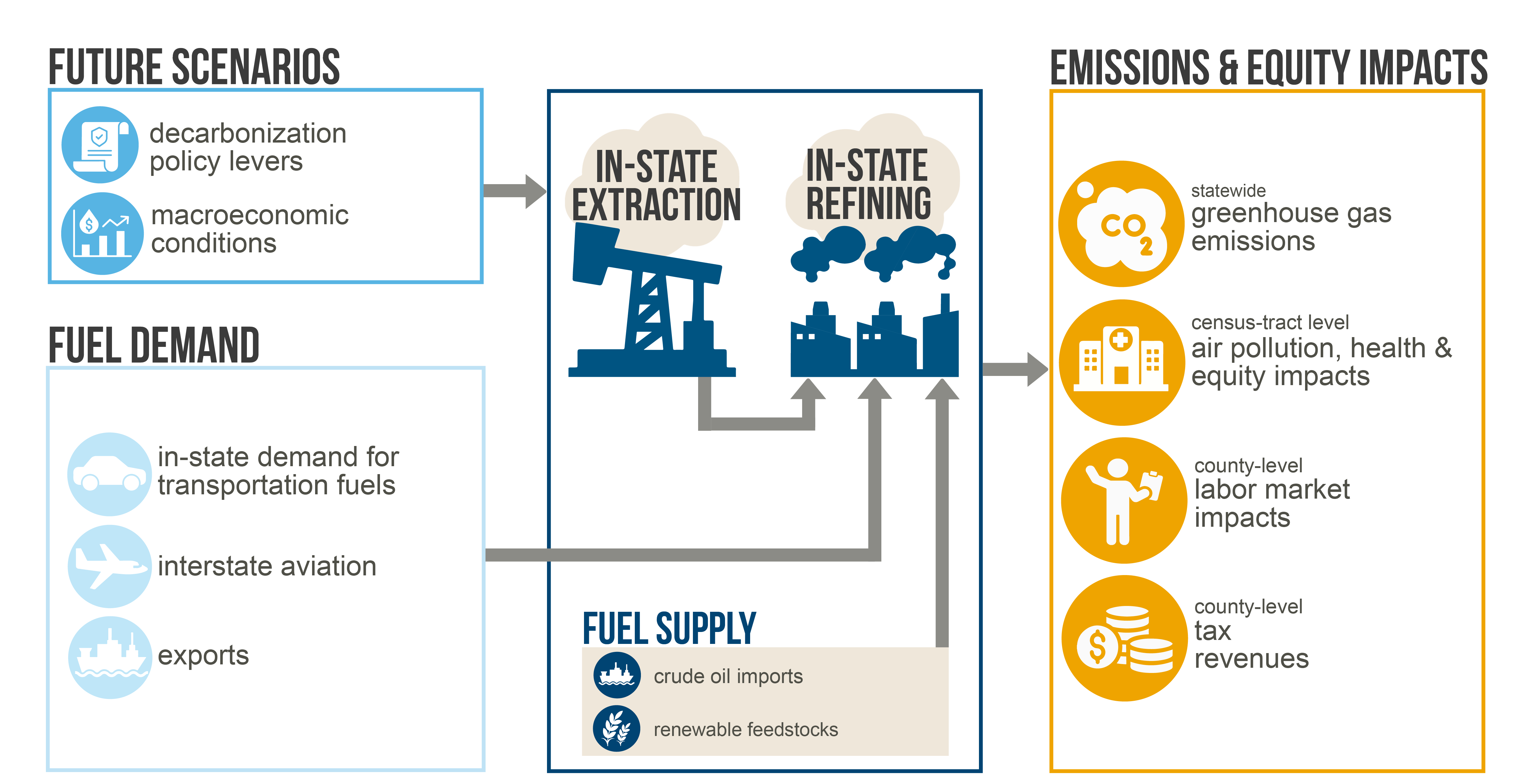About
Governor Newsom affirmed the State’s goal of achieving carbon neutrality by 2045 in the 2019 Budget Act. To achieve this goal, the State will need to dramatically reduce its greenhouse gas (GHG) emissions while permanently removing carbon from the atmosphere. These efforts will include managing strategic statewide reductions in fossil fuel demand and supply; electrifying key sectors and end uses; and making significant investments in transitioning the transportation sector and the electrical grid to zero carbon emissions. These shifts will need to take place alongside targeted investments in communities and in the State’s workforce to ensure that this transition maximizes equity, resiliency, health, and environmental quality across the State.
The transportation sector is an especially important priority for California. When including fossil fuel extraction and refining, the transportation sector accounts for half of California’s GHG emissions. Through the 2019 Budget Act, the Newsom Administration funded two studies to identify strategies to reduce the demand for and supply of fossil fuels, with the goal of dramatically reducing GHG emissions across the transportation sector. In a collaboration between emLab’s Climate & Energy program, UCSB’s Earth Science Department, and the Clean Energy Transformation Lab, we have conducted the second of the two studies which focuses on the supply-side of the transportation sector.

